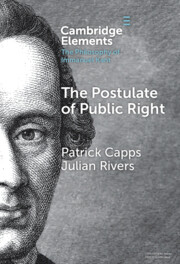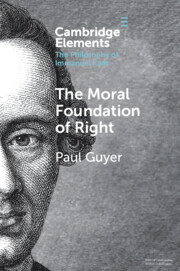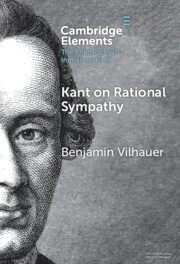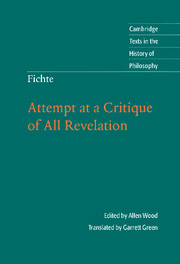The Postulate of Public Right
Kant's main work in the philosophy of law – the Doctrine of Right (1797) – is notoriously difficult for modern readers to understand. Kant clearly argues that rightful relations between human beings can only be achieved if we enter into a civil legal condition taking a defined constitutional form. In this Element, we emphasise that Kant considers this claim to be a postulate of practical reason, thus identifying the pure idea of the state as the culmination of his entire practical philosophy. The Doctrine of Right makes sense as an attempt to clarify the content of the postulate of public right and constructively interpret existing domestic and international legal arrangements in the light of the noumenal republic it postulates. Properly understood, Kant's postulate of public right is the epistemological foundation of a non-positivist legal theory that remains of central significance to modern legal philosophy and legal doctrinal method.
Product details
January 2025Hardback
9781009532730
78 pages
235 × 160 × 10 mm
0.26kg
Available
Table of Contents
- Preface
- Introduction
- 1. From principle to postulate
- 2. Law in light of the noumenal republic
- Afterword
- List of abbreviations
- Bibliography.









